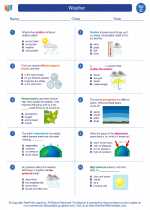Sustainability
Sustainability is the ability to maintain or uphold a certain condition or process over the long term without depleting resources or causing harm to the environment. It involves meeting the needs of the present without compromising the ability of future generations to meet their own needs.
Key Concepts
- Environmental Sustainability: This refers to the responsible use of natural resources and the protection of the environment to ensure that future generations can also benefit from them.
- Social Sustainability: This focuses on maintaining and improving the quality of life for all individuals within a society, ensuring that basic needs are met and that people have access to resources and opportunities.
- Economic Sustainability: This involves using resources efficiently and creating economic systems that are able to support current and future needs without depleting resources or causing detrimental effects.
Principles of Sustainability
There are several key principles that guide sustainable practices:
- Reduce, Reuse, Recycle: Minimize waste and make efficient use of resources through the 3 R's.
- Renewable Energy: Utilize sources of energy that are naturally replenished, such as solar, wind, and hydroelectric power.
- Conservation: Protect and preserve natural habitats and biodiversity by minimizing human impact on the environment.
- Efficient Resource Use: Use resources such as water, energy, and materials efficiently to minimize waste and environmental impact.
Importance of Sustainability
Sustainability is crucial for maintaining the health of the planet and ensuring a high quality of life for all living beings. By implementing sustainable practices, we can reduce environmental degradation, conserve natural resources, and create a more equitable and prosperous society.
Study Guide
- What is sustainability and why is it important?
- Explain the three key concepts of sustainability.
- Discuss the principles that guide sustainable practices.
- How can individuals contribute to sustainability in their daily lives?
Understanding sustainability is essential for creating a better future for our planet and its inhabitants.
.◂Science Worksheets and Study Guides Third Grade. Weather
Study Guide Weather
Weather  Worksheet/Answer key
Worksheet/Answer key Weather
Weather  Worksheet/Answer key
Worksheet/Answer key Weather
Weather  Worksheet/Answer key
Worksheet/Answer key Weather
Weather  Vocabulary/Answer key
Vocabulary/Answer key Weather
Weather  Vocabulary/Answer key
Vocabulary/Answer key Weather
Weather 

 Worksheet/Answer key
Worksheet/Answer key
 Worksheet/Answer key
Worksheet/Answer key
 Worksheet/Answer key
Worksheet/Answer key
 Vocabulary/Answer key
Vocabulary/Answer key
 Vocabulary/Answer key
Vocabulary/Answer key

The resources above cover the following skills:
EARTH AND SPACE SCIENCE (NGSS)
Earth’s Systems
Students who demonstrate understanding can:
Represent data in tables and graphical displays to describe typical weather conditions expected during a particular season.